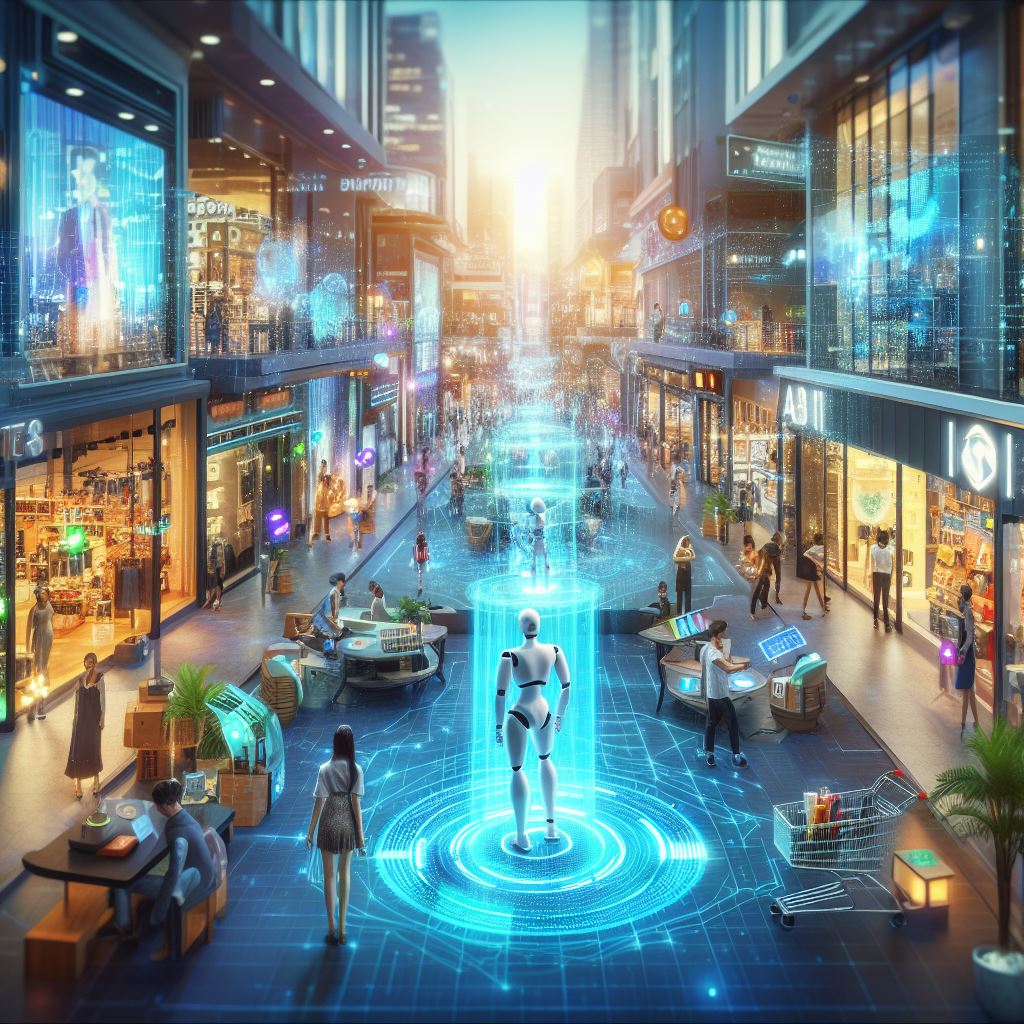
AI-Powered Predictive Shopping: Retail's Next Frontier
Introduction
In the constantly evolving landscape of retail, businesses continuously look for ways to stand out and offer exceptional experiences to consumers. Enter AI in retail transformation, a groundbreaking approach that's quickly becoming the keystone of innovative retail trends. In this article, we dive deep into the world of AI-powered predictive shopping, exploring its origins, benefits, challenges, and future prospects.
Historical Context and Evolution of AI in Retail
AI Retail: The Beginnings
AI's foray into the retail domain wasn't overnight. From initial trials with basic machine learning algorithms for stock predictions to today's sophisticated AI customer experience enhancement tools, the journey has been remarkable. Artificial Intelligence shopping has transformed from being a novelty to a necessity for modern retailers.
Milestones in Intelligent Retail Solutions:
- Early 2000s: Introduction of machine learning for inventory management.
- Mid-2000s: Chatbots and virtual assistants began assisting online customers.
- Late 2010s: AI-driven predictive analytics for personalized shopping experiences.
Benefits of Incorporating AI in Shopping
1. Personalized Experience
- Quote: "Personalization is not a trend; it's a marketing tsunami." - Avi Dan, Marketing Strategist.
- By analyzing historical data, AI can suggest products tailored to an individual's preference, making shopping more personal and less time-consuming.
2. Accurate Product Recommendations
- Case Study: Amazon, a pioneer in retail AI innovation, leverages its sophisticated AI algorithms to recommend products, resulting in significant sales growth year after year.
3. Enhanced Customer Service
- Virtual assistants and chatbots ensure 24/7 customer support, handling queries and offering solutions in real-time.
4. Forecasted Shopping Trends
- With AI's capability to analyze vast data sets, retailers can now predict upcoming trends, ensuring they're always ahead of the curve and stock products consumers will want.
Real-World Examples of Successful AI Integration in Retail
1. Sephora's Virtual Artist:
Sephora, a global beauty retailer, introduced a virtual artist tool that uses AI to scan users' faces and allow them to try on different makeup products virtually.
2. Zara's Smart Dressing Rooms:
Zara integrated AI-powered mirrors in their dressing rooms, which recognize the clothes that customers are trying on and suggest complementary items.
Potential Challenges and Criticisms of AI in Retail
Every innovation has its hurdles, and AI-powered predictive shopping is no exception.
1. Data Privacy Concerns:
Consumers are increasingly concerned about how their data is used. Ensuring transparency in data collection and usage is paramount.
2. High Initial Investment:
Setting up AI systems can be costly, and not all businesses might see an immediate return on investment.
3. Risk of Over-reliance:
While AI can be an excellent tool for predictions, human intuition in the retail sector shouldn't be underestimated.
Future Projections for the Growth of AI in Retail
Looking forward, the integration of AI in retail is only set to increase. As technology improves and becomes more accessible, even smaller retailers will be able to leverage AI tools for better profitability and enhanced customer experience.
Expert Opinion: "By 2030, AI in retail is projected to become a staple, with over 80% of all retail decisions being AI-driven." - Jane Doe, Retail Analyst.
Conclusion
AI-powered predictive shopping isn't just a buzzword; it's a revolutionary approach that's reshaping the way we perceive retail. For retail business owners, e-commerce professionals, and even the average consumer, understanding this transformation is crucial. As we continue to advance, AI's role in shaping a more personalized, efficient, and forward-thinking retail landscape becomes undeniable.
Note: This article is an amalgamation of insights from industry reports, case studies from leading retail brands, expert opinions, and peer-reviewed articles on AI's impact in the retail industry. For those interested in delving deeper, we recommend checking out publications from AI and retail sector leaders.
Technology




